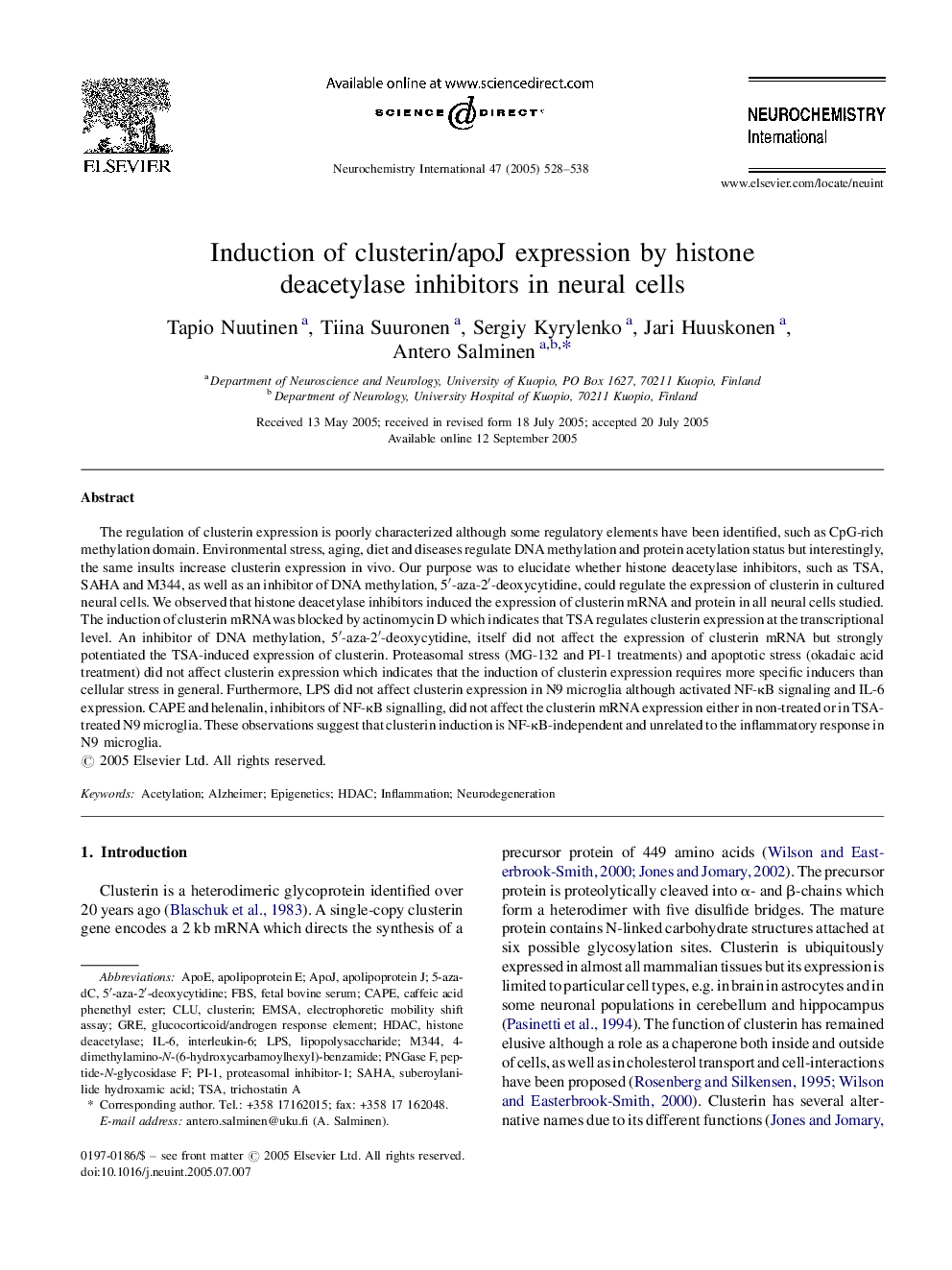| Article ID | Journal | Published Year | Pages | File Type |
|---|---|---|---|---|
| 10958428 | Neurochemistry International | 2005 | 11 Pages |
Abstract
The regulation of clusterin expression is poorly characterized although some regulatory elements have been identified, such as CpG-rich methylation domain. Environmental stress, aging, diet and diseases regulate DNA methylation and protein acetylation status but interestingly, the same insults increase clusterin expression in vivo. Our purpose was to elucidate whether histone deacetylase inhibitors, such as TSA, SAHA and M344, as well as an inhibitor of DNA methylation, 5â²-aza-2â²-deoxycytidine, could regulate the expression of clusterin in cultured neural cells. We observed that histone deacetylase inhibitors induced the expression of clusterin mRNA and protein in all neural cells studied. The induction of clusterin mRNA was blocked by actinomycin D which indicates that TSA regulates clusterin expression at the transcriptional level. An inhibitor of DNA methylation, 5â²-aza-2â²-deoxycytidine, itself did not affect the expression of clusterin mRNA but strongly potentiated the TSA-induced expression of clusterin. Proteasomal stress (MG-132 and PI-1 treatments) and apoptotic stress (okadaic acid treatment) did not affect clusterin expression which indicates that the induction of clusterin expression requires more specific inducers than cellular stress in general. Furthermore, LPS did not affect clusterin expression in N9 microglia although activated NF-κB signaling and IL-6 expression. CAPE and helenalin, inhibitors of NF-κB signalling, did not affect the clusterin mRNA expression either in non-treated or in TSA-treated N9 microglia. These observations suggest that clusterin induction is NF-κB-independent and unrelated to the inflammatory response in N9 microglia.
Keywords
IL-6EMSAPeptide-N-glycosidase F5′-Aza-2′-deoxycytidinePNGase FCLU5-Aza-dCSAHAGREHDACLPSFBSTSACAPEElectrophoretic mobility shift assayAlzheimerApoeapolipoprotein Eapolipoprotein JAcetylationSuberoylanilide hydroxamic acidcaffeic acid phenethyl esterinflammationEpigeneticsinterleukin-6Trichostatin ANeurodegenerationclusterinfetal bovine serumlipopolysaccharideApoJhistone deacetylase
Related Topics
Life Sciences
Biochemistry, Genetics and Molecular Biology
Cell Biology
Authors
Tapio Nuutinen, Tiina Suuronen, Sergiy Kyrylenko, Jari Huuskonen, Antero Salminen,
